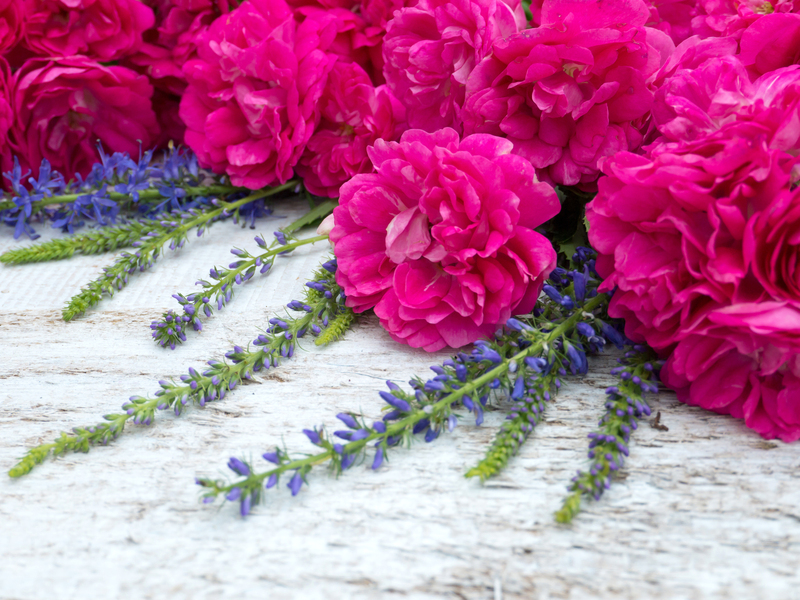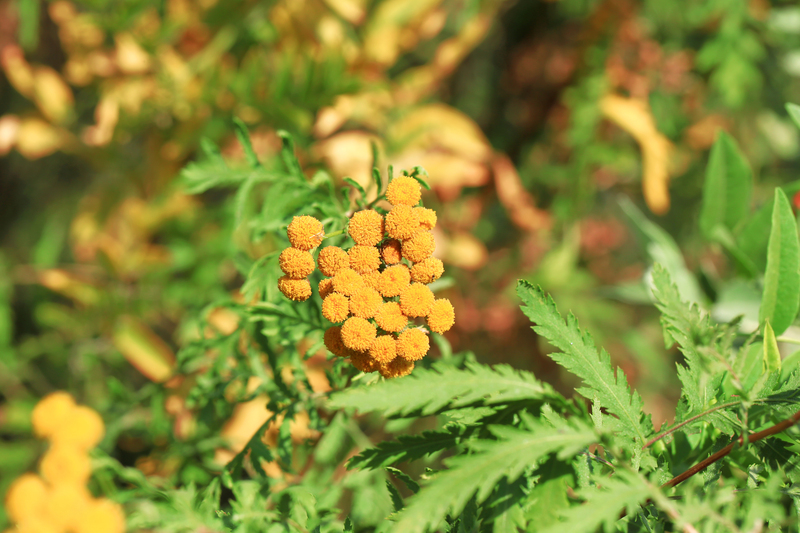Unlocking Nature's Secrets: 9 Must-Know Gardening Tips for Rookies
Posted on 12/09/2025
Unlocking Nature's Secrets: 9 Must-Know Gardening Tips for Rookies
Are you ready to turn that patch of dirt into a vibrant, flourishing garden? Whether you've just caught the gardening bug or want to maximize the potential of your outdoor space, discovering gardening tips for beginners can put you on the path to success. It's about more than just planting seeds and watching them grow; gardening is about forming a connection with nature, fostering growth with patience, and unlocking a world of secrets only the earth can reveal.
In this comprehensive guide, you'll uncover 9 essential tips for rookie gardeners--from mastering soil science to outsmarting persistent pests. By learning from nature itself, you'll gain the tools to cultivate a garden that thrives. Embark on a journey to uncover nature's wonders--starting right in your backyard!
1. Choosing the Right Spot: Harnessing Sunlight's Power
Gardening success begins with location. Plants crave sunlight--some need at least six hours of direct sun every day, while others, like ferns and some leafy greens, thrive in shadier spots. As a new gardener, it's crucial to observe your yard or balcony throughout the day. Where does the morning sun hit? Which areas become shady by afternoon?
- Sun Requirements: Tomatoes, peppers, and most flowers adore full sun. Leafy greens and herbs tolerate partial shade.
- Wind Exposure: Wind can dry out plants quickly. Place delicate plants near fences, hedges, or use a windbreak to shield them.
- Accessibility: Position your gardening space where you'll regularly see and reach it--out of sight means out of mind!
Tip: Use a sunlight calculator app or map sunlight patterns over a few days for the most accurate placement.

2. Know Your Soil: The Foundation of Any Thriving Garden
Excellent gardens are built upon healthy earth. A common rookie mistake is neglecting soil condition. Soil is far more than brown dirt; it's a living ecosystem crucial to plant health.
- Soil Testing: Buy a simple soil test kit to determine pH, drainage, and nutrient levels. Most veggies thrive in soil with a pH between 6 and 7.
- Texture Matters: Squeeze a handful--if it crumbles easily, you're in luck! Clay-heavy soil drains slowly; sandy soil loses water quickly. Amend as needed with compost or organic matter.
- Enriching the Soil: Adding compost improves texture, adds nutrients, and supports beneficial microbes. Organic mulch helps retain moisture and suppress weeds.
Pro gardening advice: Never skip the soil test! Unlocking this secret can mean the difference between lush growth and lackluster results.
3. Start Small & Simple: The Secret to Beginner Gardening Success
When enthusiasm runs high, it's tempting to create a huge, elaborate garden right away. But nature rewards those who start small, learn, and expand with confidence.
- Pick a modest plot or a couple of containers to experiment with in your first season.
- Choose low-maintenance plants such as lettuce, radishes, sunflowers, or marigolds. These are forgiving and offer quick rewards.
- Keep your first vegetable or flower bed manageable--around 4x4 feet is ideal for rookies.
Small gardens are easier to maintain and let you learn from trial and error without frustration.
4. Water Wisely: Crack the Code of Proper Irrigation
Overwatering and underwatering rank among the most common beginner gardening mistakes. The secret lies in balance:
- Consistency: Water deeply rather than frequently--this encourages roots to grow downwards, making your plants more resilient.
- Early Morning: Watering at dawn reduces evaporation and counters fungal diseases.
- Check Soil Moisture: Stick your finger an inch into the soil; if it feels dry, it's time to water.
- Drip Irrigation & Mulching: Mulch and simple drip systems help keep soil uniformly moist, reducing water waste and weed growth.
Remember: Different plants have different needs! Observe each species and stick with a regular watering routine.
5. Choose Plants that Suit Your Zone: Work with Nature, Not Against It
One of the best beginner gardening secrets is to match plant choices to your USDA Hardiness Zone (or equivalent in your region).
- Know Your Zone: Find your growing zone using online maps.
- Select Native & Adapted Plants: These require less fuss, are more pest-resistant, and better endure local weather extremes.
- Mind Frost Dates: Plant too early and risk frost-kill; plant too late and miss the season's best growth window.
Unlock nature's potential by listening to your climate--a key step for rookie gardeners eager for blooms and harvest.
6. Feed Your Plants: The Essential Role of Fertilizers
Healthy plants need nutrients beyond what basic garden soil often provides. Unlike wild plants, garden veggies and annuals are heavy feeders.
- Compost: A layer on top of your soil at planting time boosts microbial life and provides slow-release nutrients.
- Organic Fertilizers: Fish emulsion, bone meal, and kelp extract are wonderful sources of gentle nutrition.
- Frequency: Feed container plants more often (every 2-4 weeks) because nutrients leach out faster than in-ground beds.
Avoid over-fertilizing! Too much fertilizer can scorch roots and harm beneficial soil organisms. Always follow package directions.
7. Plan for Pests & Problems: Prevent Before You React
A flourishing garden attracts more than just admiring eyes--pests and diseases love healthy plants, too. Early action unlocks a world of solutions before they become problems.
- Inspect Regularly: Look for holes, yellowing leaves, or sticky residue. Early detection is key.
- Encourage Beneficial Insects: Ladybugs, lacewings, and praying mantises devour pests naturally.
- Physical Barriers: Row covers and collars around stems deter many common garden invaders.
- Organic Remedies: Mild soap sprays or neem oil often control outbreaks without harming pollinators.
Nature's secret weapon is diversity: mix up companion plants and resist the urge to plant monocultures for better pest control.
8. Embrace the Art of Pruning & Deadheading
Don't be afraid to snip! Removing dead, diseased, or dying growth lets your plants refocus energy on healthy blooms and fruit.
- Deadheading: Pinching or cutting off spent flowers encourages more blooms in annuals like petunias or zinnias.
- Prune for Airflow: Thin out crowded stems to reduce fungal issues in veggies and roses, while allowing sunshine to reach all parts.
- Sanitize Tools: Wipe pruners between cuts to prevent spreading disease.
- Don't Overdo It: Remove only up to 1/3rd of living growth at one time.
Fun fact: Many plants actually grow stronger when regularly pruned--nature's regenerative powers on display!

9. Patience, Observation, and Enjoyment: Nature's Ultimate Secret
Gardening is a lesson in patience--a dance choreographed to nature's rhythm. As a beginner, you'll see some wins and face a few inevitable mishaps. The greatest gardening hack is to observe and enjoy the process.
- Journal Your Journey: Keep notes or photos of what you plant, water, and harvest--you'll spot patterns and gain confidence.
- Celebrate Small Wins: Each sprout, blossom, and harvest is a milestone. Savor them!
- Adjust as You Learn: Use every mistake as a stepping stone; nature teaches through gentle trial and error.
Relax and have fun! The greatest secret of gardening for rookies is to enjoy your time outdoors and let curiosity lead the way.
Your Garden Awaits: Start Unlocking Nature's Secrets Today!
By following these must-know gardening tips for rookies, you'll reap more than just flowers and veggies--you'll harvest the wisdom, peace, and fulfillment that only gardening delivers. Remember, every lush garden started from humble beginnings and a curious heart. Now that you hold nature's secrets, it's time to grow. Dig in, nurture, and watch your world bloom!
Bonus Gardening Tip: Connect with Your Local Gardening Community
Want to turbocharge your green thumb? Join a gardening club, attend a workshop, or follow local gardening blogs. You'll find invaluable plant recommendations, upcoming events, and even some seasoned mentors happy to share their insider secrets!
Unlocking nature's secrets isn't just about plants. It's about growing yourself as a patient, observant, knowledgeable gardener--and rookie or not, your adventure starts now.
Frequently Asked Questions: Gardening for Beginners
- What are the easiest vegetables to grow for beginners?
Try radishes, lettuce, cherry tomatoes, and bush beans. These are resilient and yield results quickly. - How often should I water my garden as a rookie?
Most gardens need about 1 inch of water per week, but observe your soil and weather for optimal timing. - Is it better to grow plants from seeds or seedlings?
Rookies often have more luck with seedlings for tomatoes, peppers, and herbs. Quick growers like beans and peas are easy to direct sow. - How can I naturally improve my soil?
Use compost, mulch with shredded leaves, and plant cover crops over winter to boost fertility and soil health.
Ready to uncover more nature's gardening secrets? Bookmark this guide, share it with fellow plant enthusiasts, and get growing!
Latest Posts
Transforming Organic Scraps into Enriched Soil for Thriving Gardens
Essential Gardening Tools Every Outdoor Enthusiast Needs
Reviving a Neglected Garden: Your Starting Point
Unlocking Nature's Secrets: 9 Must-Know Gardening Tips for Rookies

